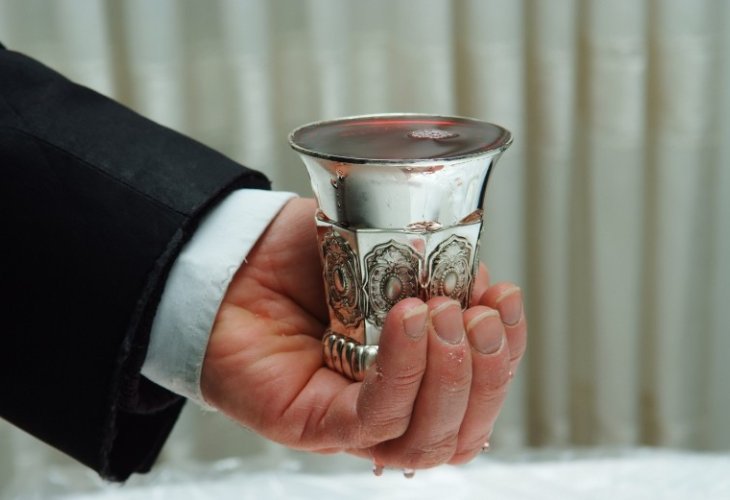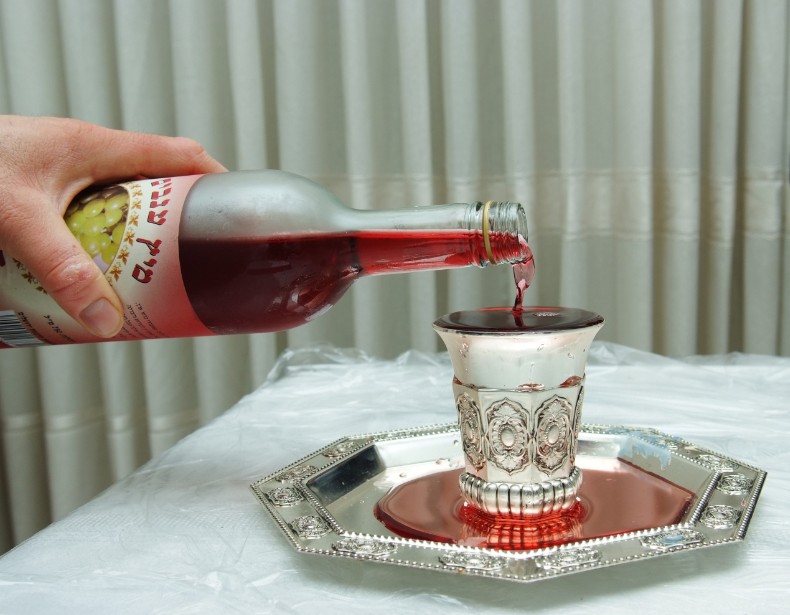Jewish Law
The Meaning of Kiddush: Why We Sanctify Shabbat Over Wine
How the Friday night Kiddush expresses faith, gratitude, and the Jewish mission to bring holiness into the world

In the Ten Commandments, the mitzvah to observe Shabbat is stated as: “Remember the Shabbat day to sanctify it.” The Sages explained: “Remember it over wine when it enters” — meaning, one should sanctify the Shabbat on Friday night, as it begins.
Kiddush serves as a testimony to the creation of the world. This testimony is expressed through the verses: “And the heavens and the earth were completed, and all their hosts. And God finished on the seventh day His work that He had done, and He rested on the seventh day from all His work that He had done. And God blessed the seventh day and sanctified it, because on it He rested from all His work that God created to do.” (Bereishit 2:1–3)
A Declaration of Faith
When a person stands with their family and recites Kiddush over wine on Friday night, they publicly proclaim their belief in a Creator — affirming that nothing in the universe came into being on its own, that there is no coincidence, and that everything exists through the will and action of God, the Maker of heaven and earth. The remembrance of Creation is specifically tied to Shabbat, because it was on this day that God rested from His work.
Another reason mentioned in the Kiddush text is: “A remembrance of the Exodus from Egypt.” Shabbat also commemorates the liberation from slavery to freedom — reminding us of God’s redemption and providence.
Kiddush is thus a symbol of faith in the Creator’s existence.
The one who recites Kiddush declares belief in the core principles of Judaism, identifying with the nation that sanctifies the seventh day — a people chosen to carry the message of faith to the world.
 (Photo: Mendy Hechtman / Flash 90)
(Photo: Mendy Hechtman / Flash 90)Laws and Customs
It is forbidden to eat or drink before reciting Kiddush. This prohibition begins from the moment one accepts Shabbat, and in any case, a few minutes before sunset.
It is customary to cover the challot intended for Lechem Mishneh (the two loaves) during Kiddush. The reason is “so that the bread does not see its shame” — meaning, because the blessing over wine precedes that over bread, even though bread is normally given precedence.
Daytime Kiddush
Our Sages also instituted a Kiddush for Shabbat morning. In this Kiddush, one recites the blessing over a cup of wine — “Borei Pri HaGafen.” It begins with verses about the giving of Shabbat to Israel (“V’shamru Bnei Yisrael…”), and some add verses about remembering the Shabbat. This Kiddush is called “Kiddusha Rabba” — the Great Kiddush.
Some have the custom to recite Kiddush while standing, while others do so while seated. Both customs are valid according to halacha.

